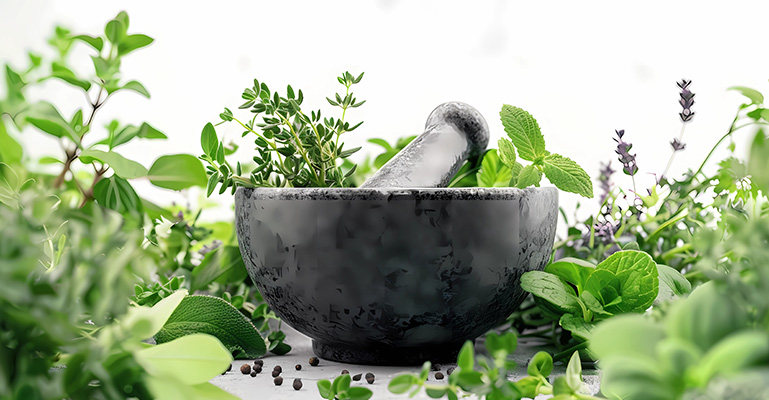



In the fast-paced modern world, the ancient wisdom of Ayurveda offers a grounding and nurturing approach to life. The ayurvedic daily routine, known as Dinacharya, is designed to align your body and mind with nature’s rhythms. Following Dinacharya brings harmony to your constitution, enhances digestion, and promotes a life of balance, self-discipline, and longevity. For those wondering how to follow Dinacharya for beginners, starting with small, consistent habits each morning can make a profound difference.
Uttanam – Waking Up Early
The ayurvedic daily routine begins at Brahma Muhurta. This sacred time is believed to be calm and pure, ideal for spiritual practices and setting a positive tone for the day.
Dantadhavan – Brushing the Teeth
Oral hygiene is more than a morning ritual in Ayurveda. It involves using herbal sticks, traditionally 12 angula in length and as wide as the tip of the little finger. Brushing may also be done after meals, with care not to injure the oral tissues.
Anjana – Collyrium for Eye Care
In Ayurveda, the eyes are considered the most vital sense organs: “Sarvendriyanam nayanam pradhanam” – Of all senses, the eyes are paramount.
Anjana is the practice of applying medicated collyrium to the inner eyelids. It strengthens the eyes, clears impurities, and enhances vision when done regularly.
Nasya – Nasal Cleansing
The nose is the gateway to the head. Nasya involves administering herbal oils or decoctions through the nostrils to cleanse and nourish the upper respiratory tract and brain. It’s especially effective for ailments related to the head and neck.
Gandusha – Oil Holding for Oral Health
Gandusha is the act of holding oil or medicated liquid in the mouth, often enhanced with ingredients used in Ayurvedic medicines to treat oral ailments and boost immunity.
Abhyanga – Daily Oil Massage
Abhyanga, the self-massage with warm oil, is vital for Vata balance and overall vitality. Like watering the roots of a tree, daily massage nourishes the body and mind. Focus on the head, ears, and soles for maximum benefit. You can enhance this ritual by using Ayurvedic Head Massage Oil, which is specially formulated to calm the nervous system and improve scalp circulation.
Benefits include:
Vyayama – Physical Exercise
Exercise in Ayurveda is not just about fitness—it's a spiritual practice that lightens the body and enlivens the mind.
Benefits:
Overexertion leads to fatigue, thirst, and imbalance, so moderation is key.
Snana – Bathing as a Ritual
Bathing is not merely for cleanliness but for rejuvenation and prevention of diseases. Use warm water below the neck and avoid hot water on the head and eyes. Therapeutic bath rituals may include herbal scrubs, oils, and infusions.
Snana Benefits:
Avoid bathing right after meals.
Ahara – Mindful Eating
Ahara is one of Ayurveda's three pillars of life. A balanced, sattvic diet nourishes the body, sharpens the mind, and fuels spiritual growth. As part of your ayurvedic daily routine, mindful eating should be practiced daily with intention.
Guidelines:
Nidra – The Power of Sleep
Nidra, or proper sleep, is vital for restoration. It’s not just about quantity but also quality and timing. Poor sleep patterns can lead to obesity, anxiety, and poor immunity.
Adequate amount of sleep as well as suitable timing of sleep is needed for maintenance of good health. Including good sleep hygiene in your ayurvedic daily routine helps the body recover and repair naturally.
General Guidelines by Acharyas:
Suppressing these urges, a common trend in our high-paced lifestyle, can lead to various health disorders. This is why a structured ayurvedic daily routine promotes self-awareness and prevention over cure.
Conclusion:
Ayurveda doesn’t just treat disease it prevents it by promoting a life of balance, rhythm, and self-care. By practicing the ayurvedic daily routine, you invite stability into both your physical and mental well-being. From the moment you rise at Brahma Muhurta to the time you lay your head down for restful Nidra, each part of Dinacharya serves a purpose.
For those unsure how to follow Dinacharya for beginners, start with one or two practices like oil pulling or mindful eating. Gradually, as your awareness and discipline grow, you can embrace the complete ayurvedic daily routine for a more centered, vibrant life.
Remember, Ayurveda teaches us that true health comes not from a pill, but from consistent, conscious living. Begin your day the Ayurvedic way—and let each sunrise bring you one step closer to holistic harmony.




